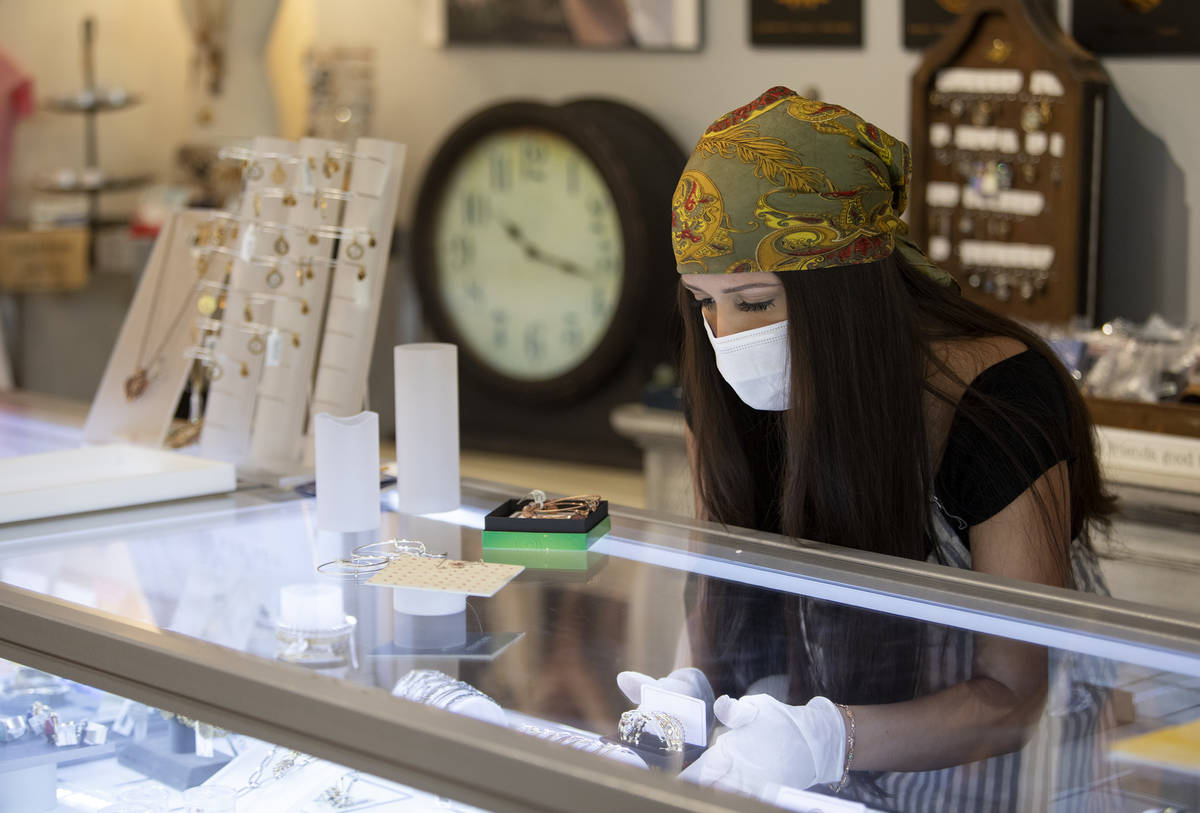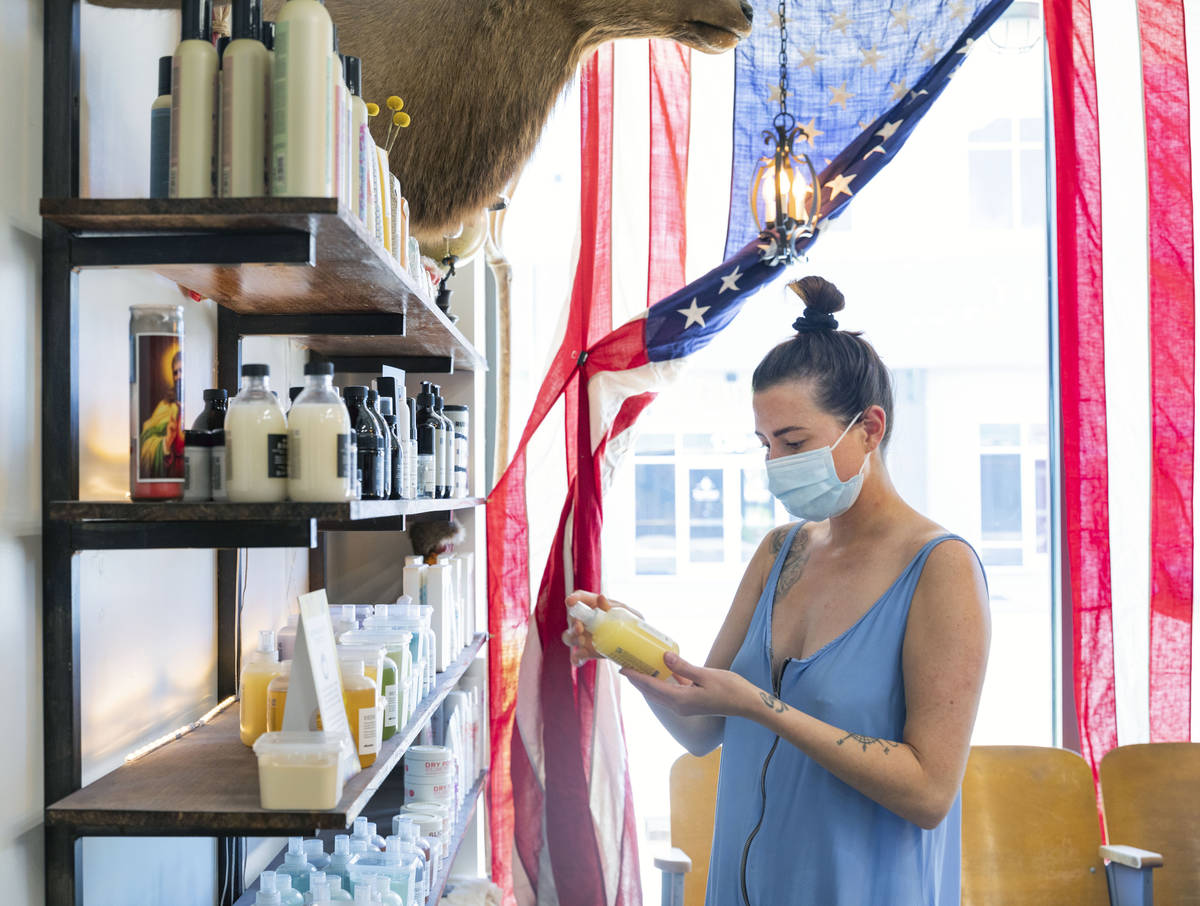Lawyers weigh in on liability of businesses reopening in pandemic
As retail stores, restaurants, barbershops and nail salons across Nevada welcome back customers, establishments that follow the governor’s orders and federal guidelines are less likely to face repercussions, legal experts say.
In early April, the Centers for Disease Control and Prevention recommended “wearing cloth face coverings in public settings where other social distancing measures are difficult to maintain” and stressed that social distancing was “important to slowing the spread of the virus.”
The precautions for businesses should be simple, attorney Robert Murdock said. Establish mask requirements, set up social distancing standards, prop doors open and provide a menu app for cellphones.
“We all have to find some new ways to do old things,” said Murdock, of the firm KeachMurdock.
On the other hand, employees may also want to take a few extra steps.
Lisa Anderson, a partner at the Las Vegas personal injury firm Greenman, Goldberg, Raby and Martinez who focuses on workers’ compensation, suggested that those who return to work in the early stages of the pandemic document their surroundings and encounters.
“You have to be able to point to an exact incident that caused your injury,” she said.
That may be more difficult to prove when it comes to an invisible virus that can linger for hours on durable surfaces and weeks inside asymptomatic people, Anderson and other attorneys said.
“The mere fact that you’re at work and there might be people around you might not be enough to get you a (legal) case,” Anderson said.
Meanwhile, Congress is considering whether to limit employees’ and consumers’ ability to sue employers over coronavirus-related illnesses.
While a workers’ compensation claim would cover medical expenses and lost earnings, employers may be hesitant to reopen during initial phases because of potential virus exposure to patrons, said Richard Harris, who runs a Las Vegas personal injury law firm. But he added that business owners could resort to what’s known as “comparative fault,” in which plaintiffs and defendants share a percentage of liability.
“If you showed that the business wasn’t following CDC recommendations … you could make a good case for the business not following the standard of care and not being reasonable in trying to mitigate exposure to the guests,” Harris said.
‘Good business’
Personal injury attorney Ed Bernstein said businesses are obligated to provide a safe establishment for employees and customers, but “the difficulty is proving by a preponderance of the evidence that you contracted the virus in that establishment. … These are not easy things to show.”
Some retail shops are requiring employees and customers to wear face coverings. Bernstein said the owners have a legal right to do so, “as long as you’re not discriminating illegally against a class of people.”
As Las Vegas casino companies contemplate reopening resorts, Bernstein suggested that following guidelines should keep them free of legal repercussions.
“It’s just good business,” he said. “Keep your employees and customers safe. … If you follow the guidelines, you’re going to be safe.”
Murdock agreed and said someone who contracts the coronavirus would have to show “proximate cause” detailing where the disease was transmitted.
“That’s going to be where it’s very difficult to prove,” he said. “On the other hand, if you go into a store, and they’re taking the right steps, the reality is there’s not going to be much liability.”
Eugene Volokh, a constitutional law expert at UCLA, said business owners who want to take steps to avoid litigation could ask employees to download smartphone apps that trace contacts with coronavirus patients.
Many employers are likely to look to their business interruption insurance, which covers losses brought on by emergencies, when weighing reopenings, Volokh and the lawyers said.
Late last month, the owner of the popular breakfast and lunch spots Egg Works and Egg & I sued his insurers, claiming his request for coronavirus-related business interruption payments was ignored.
“Most businesses will be pretty eager to reopen even not withstanding the risk of liability because the cost of staying closed is so huge to them,” Volokh said. “I totally appreciate the desire of businesses to be risk averse. At the same time businesses also realize the main threat isn’t a lawsuit; the main threat is a lack of customers.”
Contact David Ferrara at dferrara@reviewjournal.com or 702-380-1039. Follow @randompoker on Twitter.



















